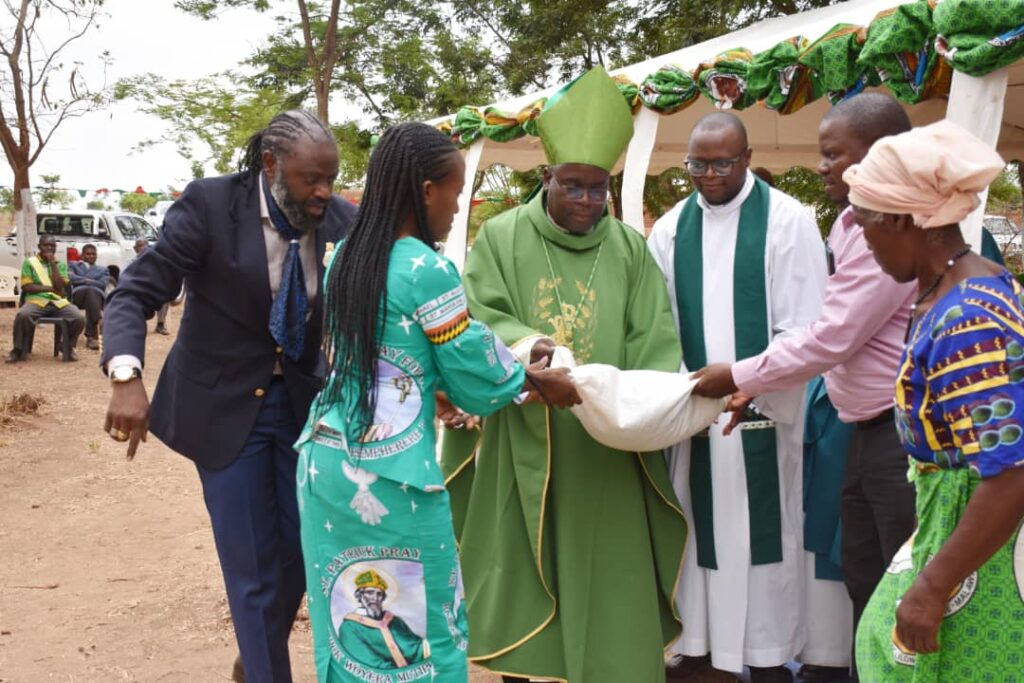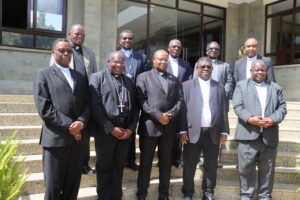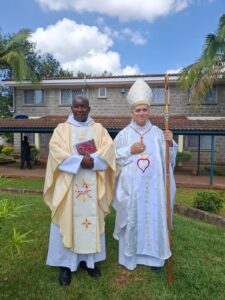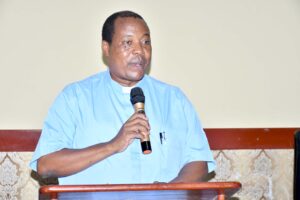MALAWI: “We are Slaves of Jesus Christ” Archbishop Tambala on World Day for the Poor

President of ECM Archbishop George Desmond Tambala, says the World Day of the Poor
Gabriel Kamlomo
President of the Episcopal Conference of Malawi (ECM) Archbishop George Desmond Tambala, says the World Day of the Poor is an important time for the Catholic faithful to reflect on their duty and responsibility towards humanity in line with the Holy Scriptures.
Archbishop Tambala who is the prelate for the Archdiocese of Lilongwe, said this on November 13 at Mpale, an outstation under St. Francis Catholic Parish, Kanengo, in Lilongwe where the Church held national commemorations of the World Day of the Poor.
The day was dedicated by Pope Francis in 2017 for Catholics worldwide to reflect on helping the poor.
Most Rev. Tambala has since suggested that a special day be identified in the Archdiocese when “we shall meaningfully help the poor. Perhaps dedicate one Sunday collection for this purpose,” he said noting the elderly, orphans, street children, jobless youth, are among the most suffering in the archdiocese of Lilongwe.
“I want to thank Pope Francis for setting this day aside. He lives by example, himself. He does not only remind us never to forget the poor; rather, he personally goes to the poor to help without being noticed,” he observed.
 During the ceremony, over 150 individuals from different faith denominations who included the elderly, orphans, widows, widowers, people with disabilities and child-headed homes were handed bags of maize, beans, children’s nutrient porridge powder popularly known as Likuni Phala, soap, salt, clothes and other items courtesy of the Catholic Development Commission -CADECOM and the ECM.
During the ceremony, over 150 individuals from different faith denominations who included the elderly, orphans, widows, widowers, people with disabilities and child-headed homes were handed bags of maize, beans, children’s nutrient porridge powder popularly known as Likuni Phala, soap, salt, clothes and other items courtesy of the Catholic Development Commission -CADECOM and the ECM.
“No one should thank anybody for what has happened today. We were supposed to do this. We are slaves of Jesus Christ. We are here to serve you. Instead, we should thank you for sparing time to be with us during the prayers. Some of you are not Catholics,” Archbishop Tambala told the beneficiaries of the World Day of the Poor.
On another note, he said the Church “shall always defend and speak for the voiceless, the vulnerable and the poor” even when what they voice out does not please some quarters. This was in reference to the church’s responsibility to defend the poor


